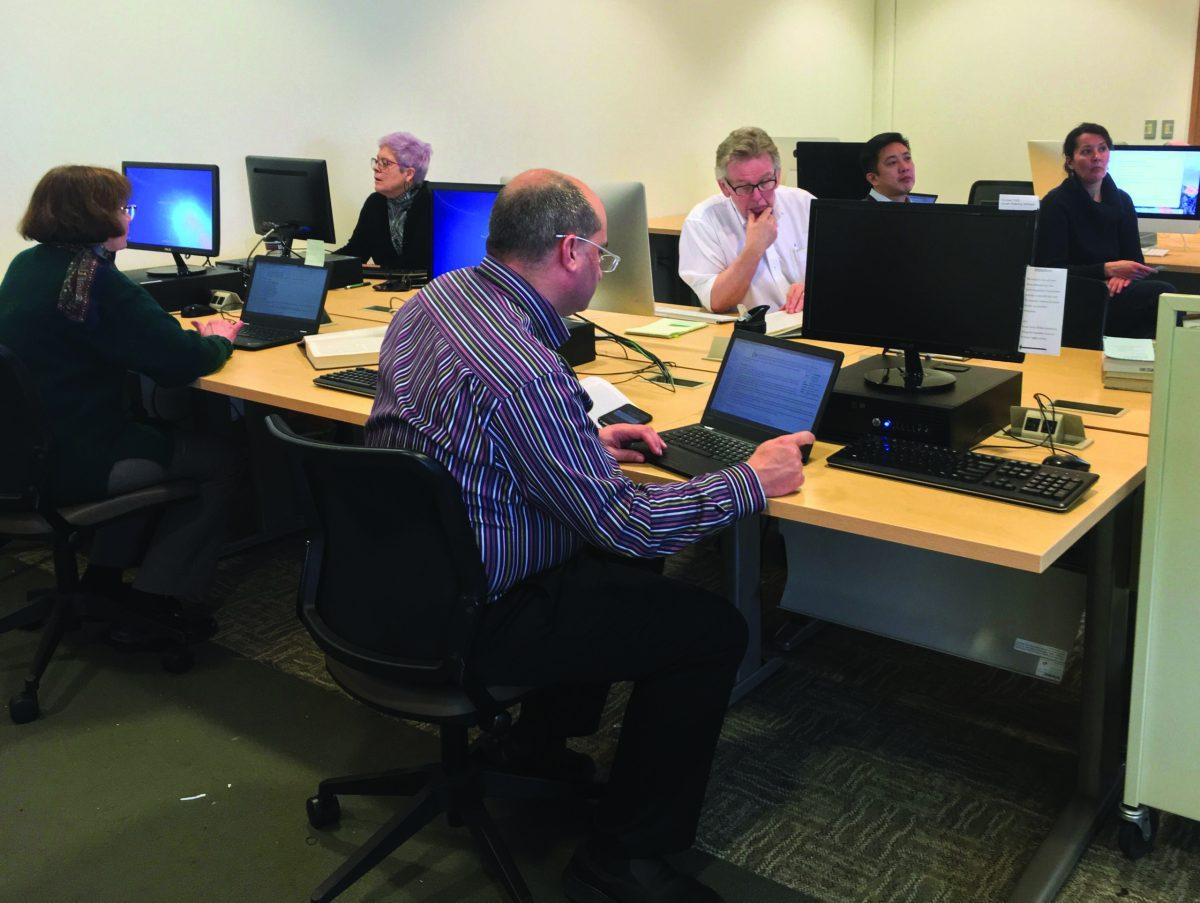Wikipedia is one of the largest crowdsourced databases in the world, encompassing almost every topic. But what to do when some of the entries are a little skimpy? For the Campbell Library, the answer was simple. This past Friday, under the guidance of a librarian, several coders logged in and added to multiple articles on the Wikipedia site.
The goal of the project was to expand the database of knowledge about women of historical significance from New Jersey. Each person was tasked with selecting one or more stub articles to expand upon. Stub articles are small entries with insufficient content on the site. Some of the ways this task was accomplished were linking to historically accurate sites about the subjects or citing printed works that contained information not already in the article.
The coders at the event were under the guidance of Tim Dewysockie, a librarian at the university and a first-year grad student studying history. Dewysockie taught them basic skills and tips that helped them in their task. He explained that while Wikipedia is a good tool, it does have some blind spots, something this type of event is specifically designed to fix.
“A lot of universities have been holding Wikipedia Edit-a-thons,” Dewysockie said. “And the main reason they do that is because a majority of articles [on the site] are written by men in their twenties, and so there’s a disproportionate number of articles that are related to things that are [not] interesting to that group.”
Dewysockie added, “What we’re trying to do is fill in gaps in Wikipedia’s coverage, specifically with New Jersey women. So we’re trying to improve all the stub articles related to that.”
Kenzo Sung, an assistant professor in the Language, Literacy and Sociocultural Education department, was one of the coders at the event. When asked about why he attended, Sung said that it tied in well to his curriculum of study and that it seemed like a good way to advance the discussion surrounding the topic.
“As an assistant professor in education, [I’m] doing a lot of work around the history of education, urban education,” Sung said. “I’m always thinking about how to be able to bring what are oftentimes historically marginalized voices into the public conversation. And I really think this is an exciting way to be able to kind of draw on and have a conversation, and kind of build up a community online as well as kind of in real life too.”
For questions/comments about this story, email [email protected] or tweet @TheWhitOnline.

























































































































































!["Working with [Dr. Lynch] is always a learning experience for me. She is a treasure,” said Thomas. - Staff Writer / Kacie Scibilia](https://thewhitonline.com/wp-content/uploads/2025/04/choir-1-1200x694.jpg)









































